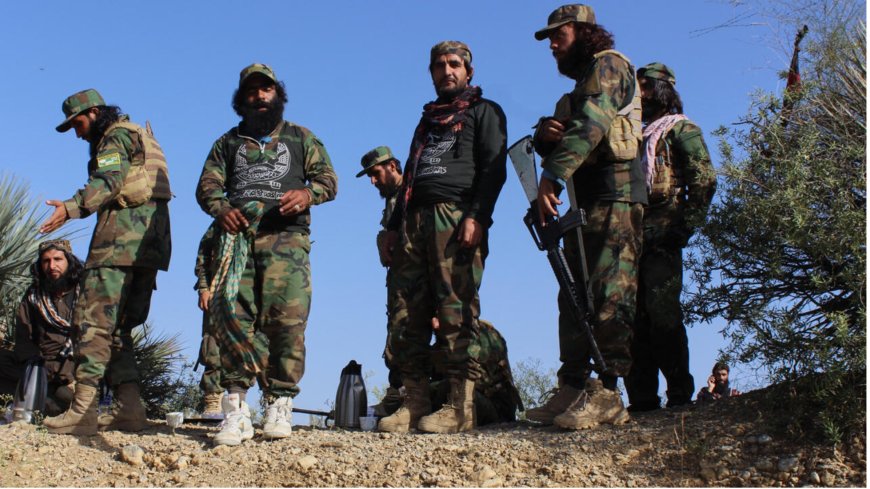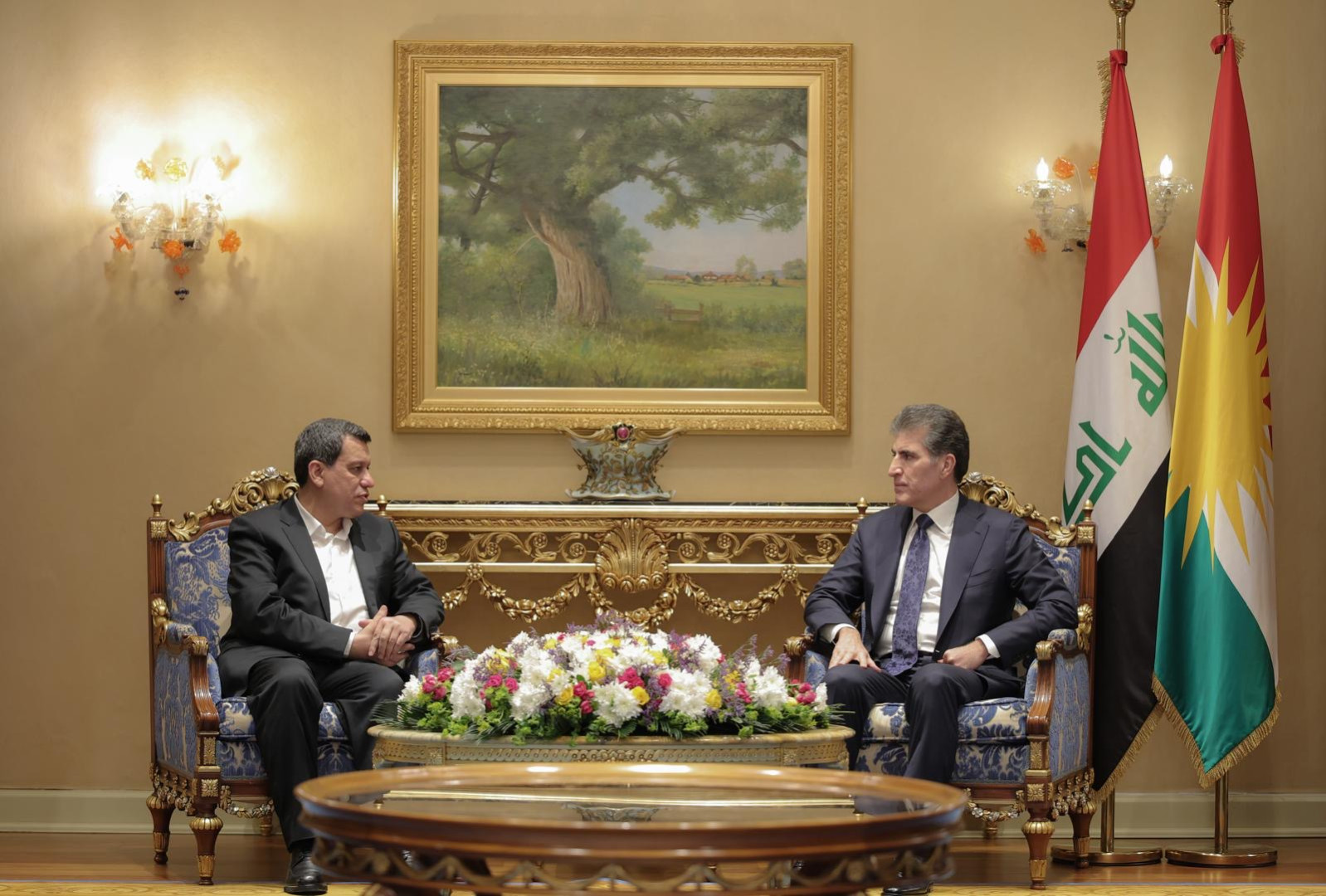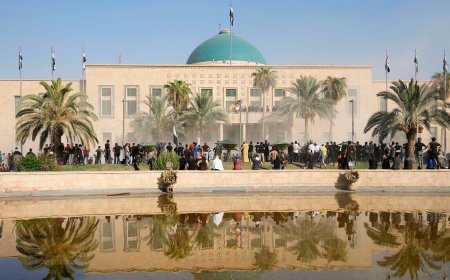Relations between Afghanistan and Pakistan
Michael E.J. Phillips / Salahaddin University-Erbil

Armed conflict in recent days between the Pakistani and Afghan militaries has resulted in a significant number of fatalities, to which Islamabad pledged a "strong response". The Islamic Republic of Afghanistan asserted that it had acted in response to what it has termed "repeated violations" of its airspace. Islamabad has accused the Kabul regime of carrying out a "scandalous" operation.
According to Zabihullah Mujahid, a Taliban spokesperson, that particular conflict resulted in the deaths of 58 Pakistani soldiers and nine Taliban combatants. This information was reported in the aftermath of the attack, which occurred on Saturday in several border provinces. Recent reports from the Pakistani army state that 23 soldiers died in the line of duty. They have moreover claimed to have neutralised more than 200 Taliban and affiliated terrorists through precision strikes.
The Pakistani army reported on 15 October that nearly 20 Afghan Taliban were killed in further clashes along the border between Afghanistan and Pakistan. According to an official army statement, the Afghan Taliban initiated an offensive along the border this morning. In response to the attack, 15 to 20 Afghan Taliban were killed and many others were wounded.
Pakistani Prime Minister Shehbaz Sharif has communicated to Kabul that any provocation will not be taken lightly. For his part, Afghan Foreign Minister Amir Khan Muttaqi has asserted that the "night-time operation" has "achieved its objectives" and that the "conflict" has concluded following mediation by Qatar and Saudi Arabia.
It is therefore of interest to look briefly at the historical relationship between Afghanistan and Pakistan to gain an understanding of the current situation.
Due to their shared geographical proximity, Pakistan and Afghanistan are interdependent, and their bilateral relations have a significant impact on regional stability, growth, security, integrity, and peace. The two nations are bound together by a shared system of religious beliefs, a common ethnicity, and regional and global interests. Despite the presence of shared interests and comparable challenges, a significant degree of mistrust and discord persists between them.
An historical analysis of the relationship reveals an ongoing pattern of tension, primarily attributable to conflicting positions on various bilateral issues. The standard security and economic challenges, shared Islamic faith, as well as ethnic and cultural similarities have proven insufficient to maintain trust between the two states, which facilitated India's interference and disruption of the bilateral engagement. The bilateral mistrust that developed during the Partition of British India from 1947 is rooted in the Afghan government's demand for the accession or separation of the Pashtun tribal areas and the revocation of the Durand Line.
Afghanistan's failure however to meet these demands resulted in a vote against Pakistan's membership of the United Nations in 1947 and consistent opposition at regional and global levels. In the political sphere, bilateral issues were leveraged as tools to sway public sentiment, fostering cooperation.
Some anticipated that the rise of the Afghan Taliban in August 2021 would contribute to enhanced bilateral relations between the two states. However, the absence of effective communication has further compounded the challenges associated with Tehreek-e-Taliban Pakistan (TTP), the repatriation of unregistered refugees, illicit trade, substantial foreign currency outflows, particularly US dollars, and border management.
The historical underpinnings of this enduring mistrust can be traced back to the colonial era, when the 1893 Durand Line Agreement was signed between British India and Afghanistan. This agreement delineated the international border between the two states. In the aftermath of the country's division, the Afghan government asserted that the border should be lifted, the tribal region should be incorporated, and a distinct state should be established for Pashtuns. Pakistan later established diplomatic relations with Afghanistan in 1948, yet relations between the two remained tense. Since achieving independence, Afghanistan has engaged in actions that have had a disruptive effect on Pakistan, particularly with regard to issues such as the concept of "Pashtunistan" and the delineation of the international border.
Afghanistan's position on the matter of Pakistan was largely congruent with India's, both nations portraying Pakistan as a potential threat to India's national security. In 1955, it aligned with the Soviet Union and India to express opposition to the United States' provision of military assistance to Pakistan, as well as Pakistan's accession to the Southeast Asia Treaty Organization (SEATO) and the Conference on European Security and Co-operation (CENTO). The Afghan government's concerns regarding Pakistan's growing military and political influence stemmed from the perception that a stronger Pakistan would disrupt the regional security balance and potentially interfere in Afghan internal affairs.
Afghanistan's strategic location at the intersection of Central and South Asia is of paramount importance in ensuring regional stability and security. The nation has been grappling with a myriad of challenges, including political instability, civil unrest, power struggles, and foreign intervention. These developments have had deleterious effects on the social and economic wellbeing of Afghan society.
The declaration of jihad against the Soviet invasion in 1979, along with the subsequent concentration of Muslim combatants from across the globe, served to further erode Afghanistan's stability and that of the region. The Islamic Republic of Pakistan has historically provided considerable support to the Afghan Jihad, with the stated aim of safeguarding Afghanistan's sovereignty, regional stability, and national security. The international community expressed gratitude at one time for Pakistan's apparent efforts to facilitate the resettlement and reconstruction of the lives of millions of Afghan refugees. In the aftermath of the Soviet withdrawal, Pakistan augmented its efforts to promote peace and reconciliation, aspiring to serve as a mediator between the warring factions in Afghanistan and to facilitate the establishment of an inclusive government in Kabul, with the objective of ensuring enduring peace.
Pakistan expressed concern over India's expanding influence in Afghanistan and the intransigence of various Afghan groups. Pakistan consequently provided support to the Afghan Taliban with the objective of safeguarding its own interests in the region. However, the events of 11 September 2001 altered the regional dynamics significantly. Following unsuccessful attempts to persuade the Afghan Taliban to expel Osama Bin Laden, Pakistan opted to join the global war on terrorism and align itself with United States policy. Despite Pakistan's consistent support for the US-backed Afghan government, including financial, economic, and diplomatic cooperation to foster stability and prosperity, the Afghan government did not reciprocate. The Afghan government expressed discontent with Pakistan's decision to construct a fence along the international border as part of a joint monitoring mechanism, and derided Pakistan's efforts to promote peace.
The ascension of the Afghan Taliban to power was met with trepidation around the world, particularly in Pakistan. The prevailing expectations included the maintenance of regional stability, the prevention of terrorist activities within Afghan territory, and the establishment of an inclusive Afghan government that would commit to promoting women's rights and the cessation of hostilities.
The Afghan Taliban government evaded international pressure and did not adhere to the stipulations of the Doha Agreement. This stipulated the cessation of hostilities with Pakistan, the removal of terrorist sanctuaries, and the release of Taliban members. The initiative sought to facilitate dialogue between Pakistan and the TTP, with the objective of resolving the ongoing tensions through peaceful negotiations. A recent escalation in TTP activities in Pakistan has been observed, coinciding with the Afghan Taliban's seizure of control over Kabul. The Afghan Taliban have been accused of leveraging the Taliban's External Working Group (TEP) as a means of exerting pressure on Pakistan. The ideological stance of the Afghan Taliban, particularly with regard to issues such as fencing and its relationship with the Taliban, has had a significant impact on the dynamics between the two nations.
Pakistan recognises the cascading ramifications of the situation in Afghanistan. Ongoing instability in Afghanistan has resulted in the emergence of a power vacuum, thereby creating a scenario that allows foreign nations, particularly India, to exert their influence. This has given rise to significant security concerns for both Pakistan and the broader region, threatening peace. In the event that India were to wield more substantial influence, it could potentially facilitate the regrouping of terrorist organizations in Afghanistan and enable the execution of sabotage activities within Pakistan. Furthermore, India has been accused of fomenting extremist, militant, and ethnic tendencies within Pakistan. The geopolitical instability in Afghanistan could impede Pakistan's capacity to collaborate with Central Asian Republics (CARs) in addressing its energy requirements.
The relationship between Afghanistan and Pakistan has always been characterised by a certain degree of tension, with significant ramifications for regional stability and peace, particularly with regard to Pakistan. In the interest of maintaining cordial relations and ensuring a positive public image, it is imperative that they maintain a sense of engagement and dialogue. Engaging in a progressive manner, prioritising dialogue over conflict, maintaining a robust stance against terrorist organisations and limiting foreign influence are key to regional stability.




















































